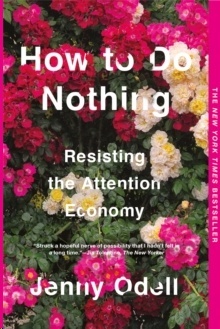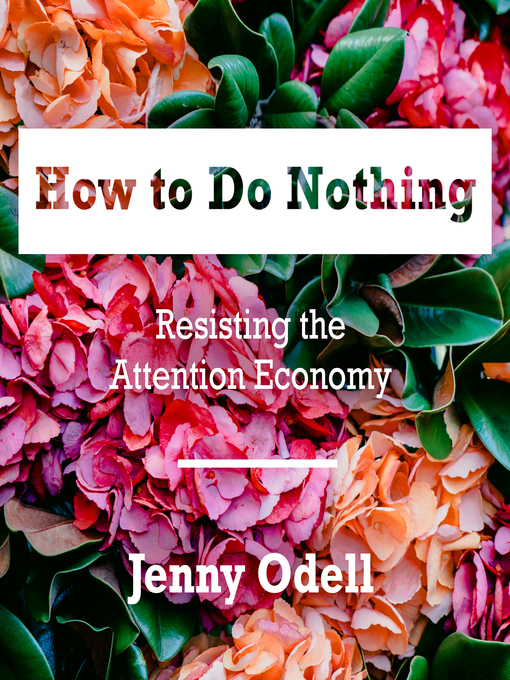

For her, artmaking is about observing the world, appreciating unpredictability, and luxuriating in “the part of the process where you don’t even know what you’re doing yet.” Yet she also acknowledges the particular irony that the type of thinking she advocates “can help you get jobs.” Employers, after all, value creativity, open-mindedness, and new perspectives on old problems. Odell encourages her students to think differently about art and its unquantifiable benefits.

In her Stanford classes, Odell recently told me by phone, she’s used to explaining “how the experience of making and looking at art is different from our idea of productivity.” Computer science majors enter her classroom with analytical, itemizing, and optimizing mindsets: They want to know how her courses, such as “Digital Art I” or “Creativity in the Age of Facebook: Making Art for and from Networks,” will help them get a job. A subtle line of aesthetic inquiry quietly undergirds Odell’s political proclamations, suggesting the value of art in a society obsessed with social media and getting ahead. She actually wants her readers to engage more thoughtfully with technology, look at the world more mindfully, and espouse a program of environmental conservation. “The fact that the ‘nothing’ that I propose is only nothing from the point of view of capitalist productivity explains the irony that a book called How to Do Nothing is in some ways also a plan of action,” Odell writes in the introduction, boldly acknowledging her radical agenda. Reading Odell’s new book, it doesn’t take long for the writer to admit that she’s not advocating indolence at all. Last but not least, Odell’s also an avid birdwatcher.

She’s written for publications including the New York Times and McSweeney’s, and she’s still promoting her book. Since 2013, she’s taught courses on internet art at Stanford University. As an artist, she’s exhibited in China, the United States, France, and Dubai. Jenny Odell, the artist who wrote the hit book How to Do Nothing: Resisting the Attention Economy (2019), has in fact done quite a lot.


 0 kommentar(er)
0 kommentar(er)
